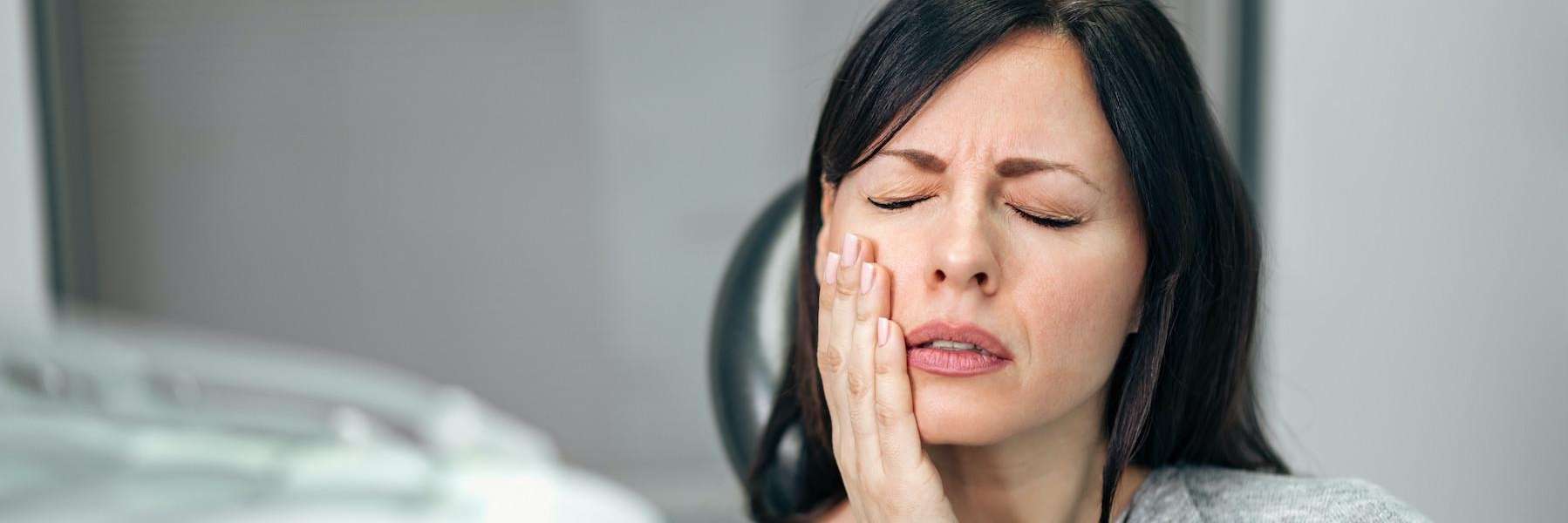
Neck and shoulder pain, frequent headaches or migraines, tenderness when biting or chewing, and excessive tooth wear are just a few of the debilitating symptoms you may be experiencing if you suffer from temporomandibular disorder (TMD) or chronic teeth clenching and grinding (bruxism).
The good news is that our Pascoe Vale dentists are experienced in helping patients suffering from TMD find relief. They can help you, too. Here's what you should know.
What Is the Difference Between TMJ and TMD?
There is often confusion about the terminology surrounding the jaw joint and its disorders. TMJ stands for the temporomandibular joint, which is responsible for all the movements of your jaw, such as opening, closing, and moving from side to side. This joint allows you to chew, eat, talk, laugh, yawn, and perform any other function that involves opening and closing your mouth.
TMD stand for temporomandibular disorder. This problem occurs when your jaw joint is not functioning correctly. It can result in several painful and debilitating symptoms, such as:
- The jaw locking open or closed
- Tenderness or pain when biting or chewing
- Neck and shoulder pain
- Frequent headaches or migraines
- Clicking or popping of the jaw joints
- Tinnitus, or ringing in the ears
- Tooth clenching and grinding
TMD may cause one or multiple symptoms, significantly impacting the patient's quality of life.
What Is Bruxism?
Bruxism is the official term for tooth clenching and grinding. This can be associated with TMD, or the patient may be suffering from bruxism due to other factors, such as stress or bite misalignment.
Clenching and grinding can be difficult to diagnose on your own since it typically happens at night while you're sleeping. However, your bed partner may hear it, or you might wake up with headaches or jaw pain, or your teeth may suffer damage from excessive wear caused by bruxism.
What Are Our Solutions for TMJ and Bruxism?
To determine the best treatment for your needs, our dentists first need to determine the root cause of your condition. Some causes of TMD and bruxism are:
- Tooth and bite misalignment
- Stress or anxiety
- Sleep disorders, such as sleep apnea
- Certain medications
- Trauma
Once we determine the root cause of the problem, our dentists can recommend the proper treatment for your needs. For example, if bite misalignment is causing your TMD, our dentists may recommend orthodontic treatment to alleviate the disorder.
Oral Appliance Therapy
Another way we can help you manage TMD or bruxism is a custom oral appliance. Our dentists customise an oral appliance to fit over your teeth comfortably, much like an orthodontic retainer. You'll wear the appliance while you sleep at night, which acts as a barrier so you can't clench and grind your teeth. This alleviates bruxism and prevents the wear, tear, and damage to your teeth that it causes.
Eliminating clenching and grinding may also alleviate TMD and its uncomfortable symptoms, providing relief.
Would You Like to Eliminate Your Discomfort?
If you'd like more information about TMD, bruxism, or how our team can help you reclaim a better quality of life, we invite you to contact Lumino Smiles and arrange a booking for an evaluation with one of our dentists.

